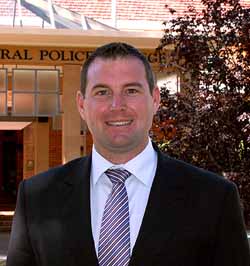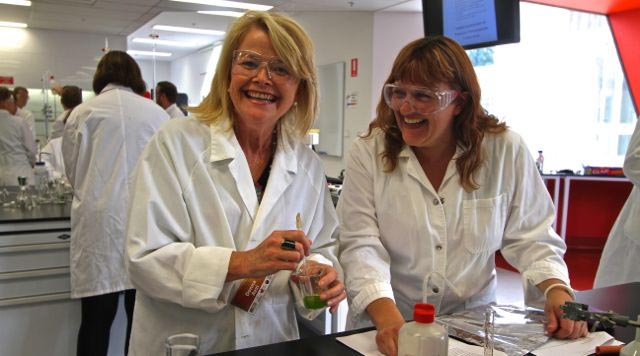
NYSF Interim Director, Damien Pearce comments:
With National Science Week upon us, there has been some discussion in the past few weeks about Australians’ level of science literacy, and the role of our science teachers in contributing to the wider community’s understanding of science.
A recent survey of the Alumni of the National Youth Science Forum (NYSF) indicated that, along with parents and family members, science teachers were highly influential in assisting students to choose study pathways and career options within science, engineering and technology. The responses suggested that the influence of science teachers extended past the immediate teaching and learning interaction and included broader considerations within the learning environment, such as school wide approaches to student centred pedagogy, and contemporary educational leadership to empower teachers as we expect so that our students can be inspired within the classroom.
The NYSF, in partnership with the Australian Science Teachers Association (ASTA), has been facilitating the National Science Teachers Summer School (NSTSS) with support from the University of Canberra (UC) and the Australian National University (ANU). Designed to enhance the status, confidence and practice of both primary and secondary science teachers, the NSTSS is a two week “holiday program” that aims to provide teachers of science with unique experiences in science and science education to re-invigorate their passion for and engagement with science, which then leads to enhancing the teaching of science to their students. This experience includes engaging with research, researchers and academics across the science, technology, engineering and mathematics fields within modern facilities that are often better equipped than most Australian schools. ANU and UC have taken an altruistic view to support this program and their support needs to be acknowledged within this audience.

Chemistry Lab at the ANU, part of the National Science Teachers Summer School January 2013
The ideology of the professions and professionalism has been widely contested and debated. Regardless of any debate, these perspectives place the emphasis on moral probity, service orientation and codes of conduct within professional practice to meet community expectations. Fundamentally, it may be argued that professions effectively strike an accord or bargain with the community in an environment where competence and integrity is exchanged for the trust, relative freedom from supervision and interference by people who do not have specialist or professional knowledge of the subject, protection against unqualified competition, substantial remuneration, and higher social status.
I also believe that the profession of science teaching and teaching more widely is taking a hammering and this definitely needs to stop. We need to be conscious that teaching is a difficult profession and trust, understanding and support from the community is imperative to mitigate negative perceptions to increase the professional status of teaching within the community. Instead of blaming teachers for relative performance of our school children in terms of benchmarked outcomes, we could place greater emphasis on the process of learning by looking closer at individual improvement of the student towards meeting the designated outcomes and not consider these outcomes in terms or absolute success or failure.
In Australia today, everyone is fortunate to have been educated to some degree, and most people have an opinion about education. Our opinions are informed by a combination of own experiences and varying engagement in debates, through the media or otherwise, about educational public policy and political agendas. To support our science teachers, lets progress from the deficit model of public opinion on the performance of teachers, to one where we identify and support them as professionals by acknowledging their specialist knowledge and trusting them to educate our children the best way they can within social-economic constraints.
Further information about National Science Teachers Summer School: nysf.edu.au/other/teachers